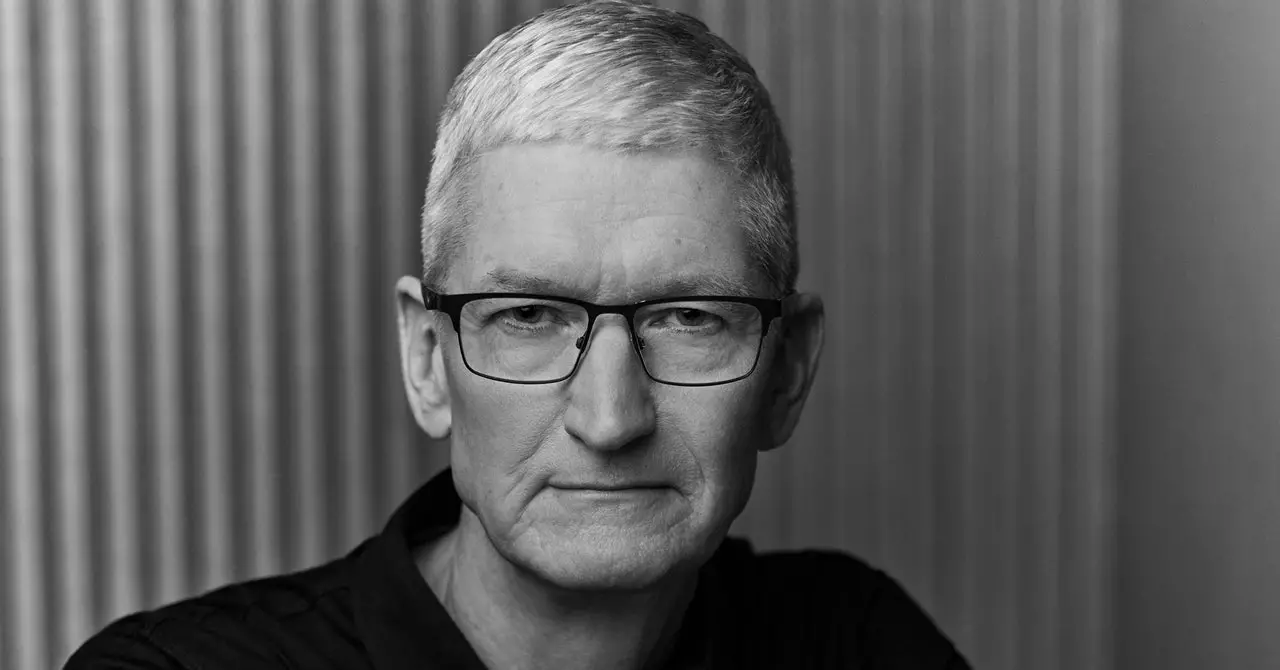Every visit to Apple Park serves as a stark reminder of the monumental transformation that has taken place since its inception. The campus, a brilliant architectural marvel, stands as a testament to both technological and organizational ambition. I vividly recall my first tour of this $5 billion circular fortress, where construction dust was still settling, and mud was a testament to the unfinished land. Guided by Tim Cook, Apple’s CEO, I witnessed firsthand his profound commitment to this project, which he referred to as a “100-year decision.” Now, years later, the campus radiates energy and vibrancy, symbolizing not just space, but the heart of a company that has continually strived to define and dominate the tech landscape.
Today, I return to this hub to engage Cook amid a pivotal juncture in the tech industry. The stakes are high, with companies poised on the brink of either monumental success or severe misstep. Our conversation revolves around a significant venture: the impending launch of Apple Intelligence, Apple’s foray into the burgeoning arena of generative artificial intelligence. In a marketplace that has seen competitors surge ahead with buzzworthy chatbot advancements, Apple’s entry feels both exciting and overdue, especially following the rollout of the much-anticipated augmented reality headset—which, while impressive, seemed to lack the AI-centric edge that many had expected.
One of Cook’s most intriguing philosophies echoes that of Steve Jobs, his predecessor: being first is not always equivalent to being best. In the chaotic field of tech innovation, Apple has consistently carved its niche by focusing on transforming existing technologies, making them not only impactful but remarkably user-friendly. The iconic iPod serves as a prime example; it was not the inaugural MP3 player, yet its unique design, ease of use, and seamless integration with iTunes created a revolutionary shift in how we consume music.
Cook argues that Apple has always been ahead of the AI curve, albeit subtly. The recruitment of John Giannandrea from Google back in 2018 marked a turning point for Apple’s AI endeavors. This decision indicated a strategic shift towards enhancing Apple’s capabilities in artificial intelligence, even as the company phased out some projects like the rumored self-driving car initiative. With new AI functionalities integrated across its product line announced at the latest developers conference, Apple aims to solidify its standing in the tech sphere.
As anticipation builds for the launch of Apple Intelligence, it’s evident that the company aims to leverage its AI developments not only to compete but to redefine user engagement with technology. In direct collaboration with OpenAI, Apple plans on incorporating powerful tools that enable users to interact more intuitively with their devices, such as creating custom emojis through verbal prompts and utilizing a user-friendly image generator.
What sets Apple’s approach apart is its unwavering focus on privacy—a central tenet of Cook’s leadership. While competitors are often criticized for their data practices, Apple’s commitment here is substantial. Many AI operations run directly on devices, intersecting user data with robust security measures rather than relying heavily on cloud processing. This approach not only enhances data protection but also meshes seamlessly with Apple’s larger privacy narrative.
Cook’s leadership style embodies a calculated, methodical approach that often contrasts with the intense persona exuded by Jobs. While Jobs was known for his aggressive and sometimes combative interactions with the media, Cook embodies a softer touch, bringing a level of calm and charisma to discussions. This demeanor serves him well as he navigates the competitive landscape of technology, all while his strategic decisions continue to bear fruit—from the Apple Watch to custom silicon chips.
As Cook enters discussions, his polite demeanor belies the weight of the decisions resting on his shoulders. He expertly highlights Apple’s milestones while deftly sidestepping criticisms of the company’s vast reach and influence. Only time will tell how Apple Intelligence will resonate with users. Given Cook’s track record, one can expect that even if the initial launch faces criticism, he will frame subsequent updates as significant improvements, maintaining the narrative of progressive advancement.
Cook operates under pressure with remarkable composure, and as we stand on the brink of this new AI frontier, it’s clear that his vision will play a pivotal role in shaping Apple’s future in a realm where many have already made their mark. The unfolding story is not just about technology; it speaks to the very essence of innovation and identity that Apple seeks to uphold.

